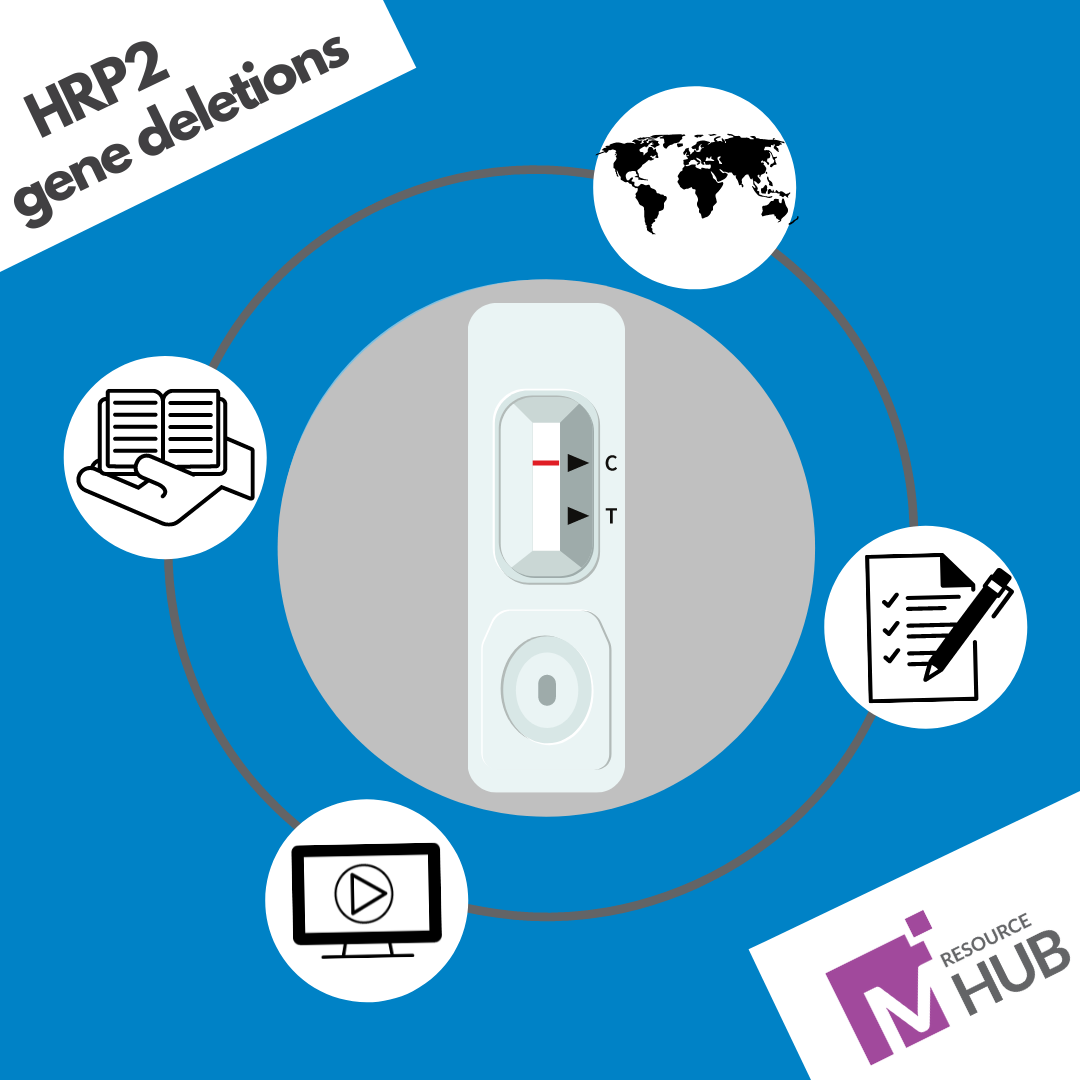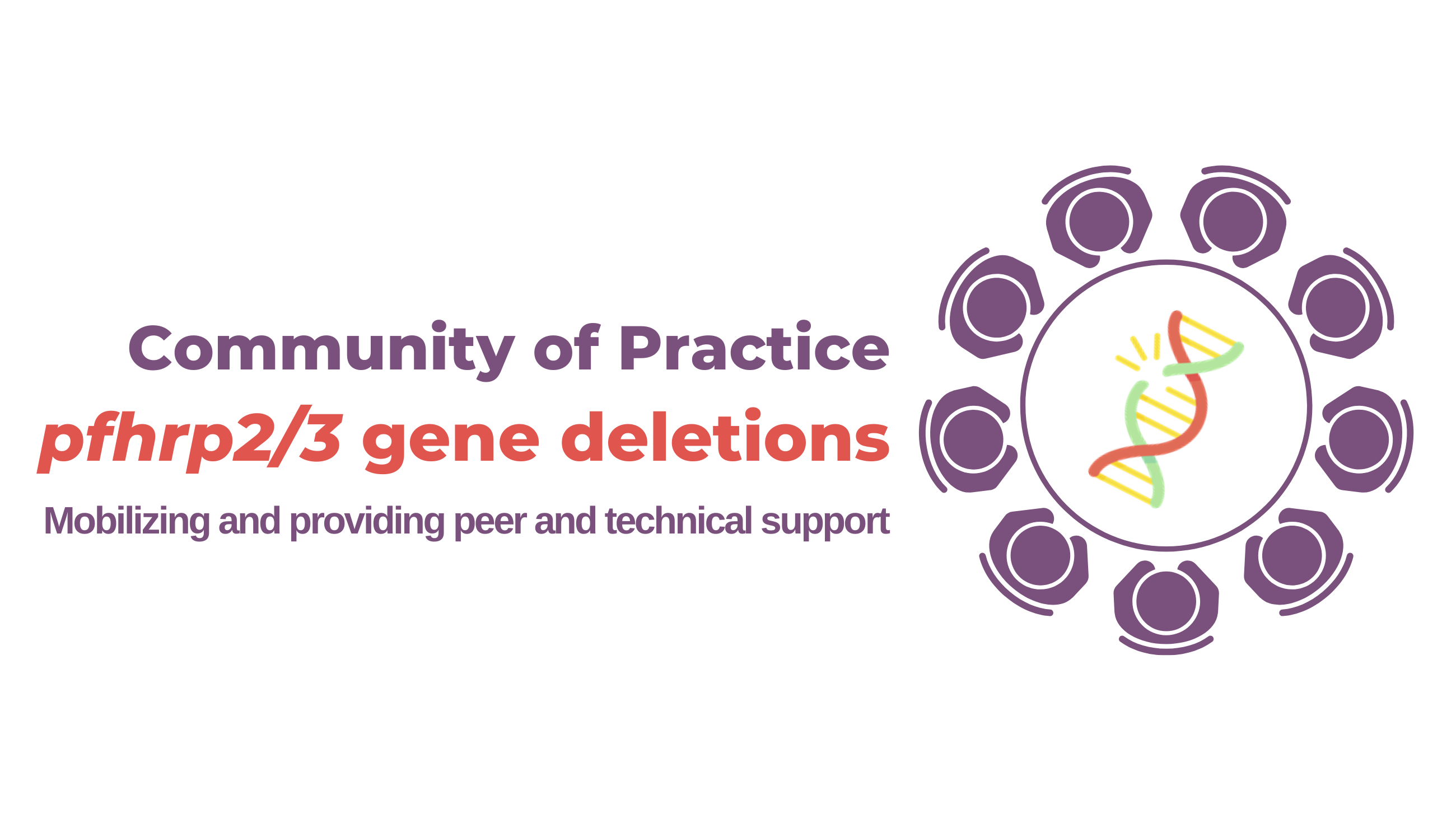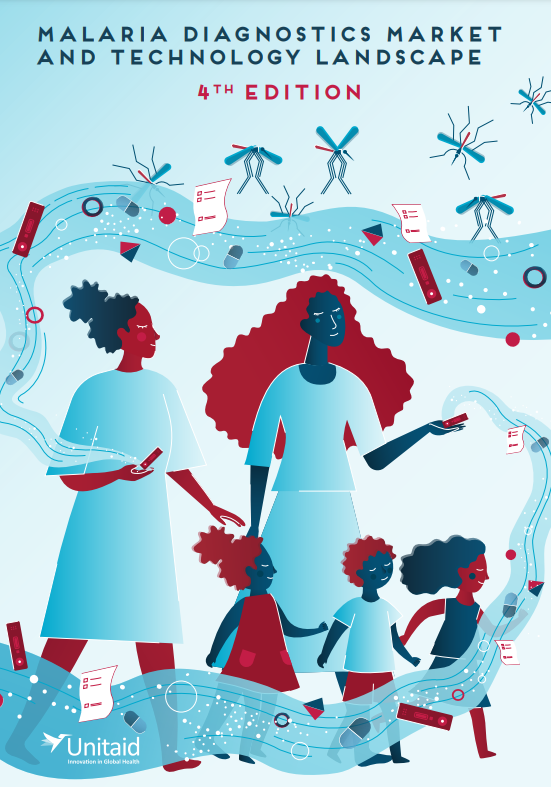Resource compilation: Responding to the threat of pfhrp2/3 deletions
Published: 22/12/2021
NOTE: As of February 2024 the contents of this compilation has been migrated to this MESA collection (where all subsequent updates will applied)
———–
In May 2021, the WHO Malaria Policy Advisory Group (MPAG) released a statement for urgent action in all endemic countries to address the threat of pfhrp2/3 gene deletions and most expeditiously in the Horn of Africa.
WHO has issued guidance on investigating suspected pfhrp2/3 deletions and is encouraging a harmonized approach to mapping and reporting of pfhrp2/3 deletions. This MESA compilation brings together a list of resources available:
WHO guidance
- False-negative RDT results and P. falciparum histidine-rich protein 2/3 gene deletions: Information note
- Response plan to pfhrp2 gene deletions – NOTE that this document is being revised and will be updated by early 2024.
WHO has published Template protocols to support surveillance and research for pfhrp2/3 gene deletions. Two types of protocols are available:
- Surveillance-only: Surveillance template protocol for pfhrp2/pfhrp3 gene deletions [English PDF] / [French PDF] – NOTE that this document was modified on 19 January 2023. The modifications are listed in the following file: corrigenda (surv. only)
- Surveillance combined with biobanking: Master protocol for surveillance of pfhrp2/3 deletions and biobanking to support future research [English PDF] / [French PDF] – NOTE that this document was modified on 19 January 2023. The modifications are listed in the following file: corrigenda (surv. & biobanking)
* WHO can provide assistance in the molecular analyses through its reference laboratory network
(contact: malaria_rdt@who.int)
WHO tracking
- Pfhrp2/3 Surveillance Tracker Dashboard – WHO questionnaire to track planned and ongoing surveillance of pfhrp2/3 deletions
- Malaria Threats Map – WHO mapping tool to track published reports of pfhrp2/3 deletions
- WHO Systematic Review – Prevalence of Plasmodium falciparum lacking histidine-rich proteins 2 and 3: a systematic review (Bull. WHO; 2020)
Online tools
- pfhrp2/3 Planner – Interactive web-based app that can be used to design a pfhrp2/3 deletion study and to analyse the results of such a study
- pfhrp2/3 Deletion Risk Explorer – Interactive web-based app that allow users to explore how changes in the underlying modelling assumptions impact the risk of pfhrp2/3 continuing to spread.
Malaria RDT products (including non-HRP2 based tests)
- Selecting and procuring malaria RDTs – WHO Global Malaria Programme procurement information
- Results of WHO product testing of malaria RDTs (Round 8) – Includes performance assessment against HRP2-negative parasites (see Table 9)
- List of Malaria RDTs according to the Global Fund Quality Assurance Policy – Products eligible for GF procurement after assessment by: (i) the WHO Prequalification (PQ) of Diagnostics Programme; or (ii) the Global Fund’s Expert Review Panel for Diagnostics (ERPD) [October 2023]
- WHO List of Prequalified In Vitro Diagnostic products – IVDs that meet WHO prequalification requirements [August 2023]
- In Vitro Diagnostics Under Assessment (WHO Prequalification) – Progress of the active applications in the prequalification of IVDs assessment pipeline [September 2023; List of Malaria RDTs]
- Malaria diagnostics market and technology landscape (Unitaid – 2022) – Includes analysis of the current malaria RDT market and R&D pipeline
Community of Practice
- Community of Practice (CoP) on pfhrp2/3 gene deletions – Mobilizing and providing peer and technical support [registration form]
Additional references
REVIEWS
Sampling:
- Mayor A et al. (2023) Trends Parasitology – Sampling for malaria molecular surveillance
Laboratory & screening methodologies:
- Beshir KB et al. (2022) Malaria Journal – Screening strategies and laboratory assays to support Plasmodium falciparum histidine-rich protein deletion surveillance: where we are and what is needed
Systematic reviews & meta-analyses:
- Zeleke AJ et al. (2022) Malaria Journal
- Molina-de la Fuente I et al. (2021) Malaria Journal
- Nyataya J et al. (2020) MDPI
- Kojom LP et al. (2020) Malaria Journal
- Agaba BB et al. (2019) Malaria Journal
MEDIA
- WHO video: Malaria diagnosis – Addressing the issue of HRP2 gene deletions [with French or Spanish subtitles]
- MESA interview: Malaria parasites ‘invisible’ to rapid tests: A conversation with Selam Mihreteab (Eritrea)
- Malaria Minute podcast (JHSPH): Malaria parasites mutate again to evade RDTs, rapid diagnostic tests
- The Conversation (article): Some malaria parasites are evading detection tests, causing an urgent threat to public health
VIRTUAL EVENTS and CONFERENCES
- MESA Forum (2023): Community of Practice on pfhrp2/3 gene deletions [Forum materials]
- MESA Forum (2022): Responding to the threat of malaria parasites evading HRP2-RDTs [Forum materials]
- ASTMH-2020 Symposium (#167): Tracking the Threat of pfhrp2/3 Gene Deletions and Future Alternatives to HRP2-based Malaria Diagnosis [MESA Correspondents Report]
- ASTMH-2017 Symposium (#62): Malaria Rapid Diagnostic Testing: Understanding and Managing the Threat of PfHRP2/3-Negative Plasmodium falciparum [MESA Correspondents Report + Presentation Videos]
PROCEDURE for WHO COMPLAINTS
Any problems experienced by countries concerning RDT performance can be formally communicated to WHO:
- Reporting safety, quality, performance issues for medical devices including in vitro diagnostics (generic procedure for complaints related to in vitro diagnostics)
- Complaints Handling by WHO (concerning a prequalified in vitro diagnostic)
Published: 22/12/2021

THEMES: Diagnostics

